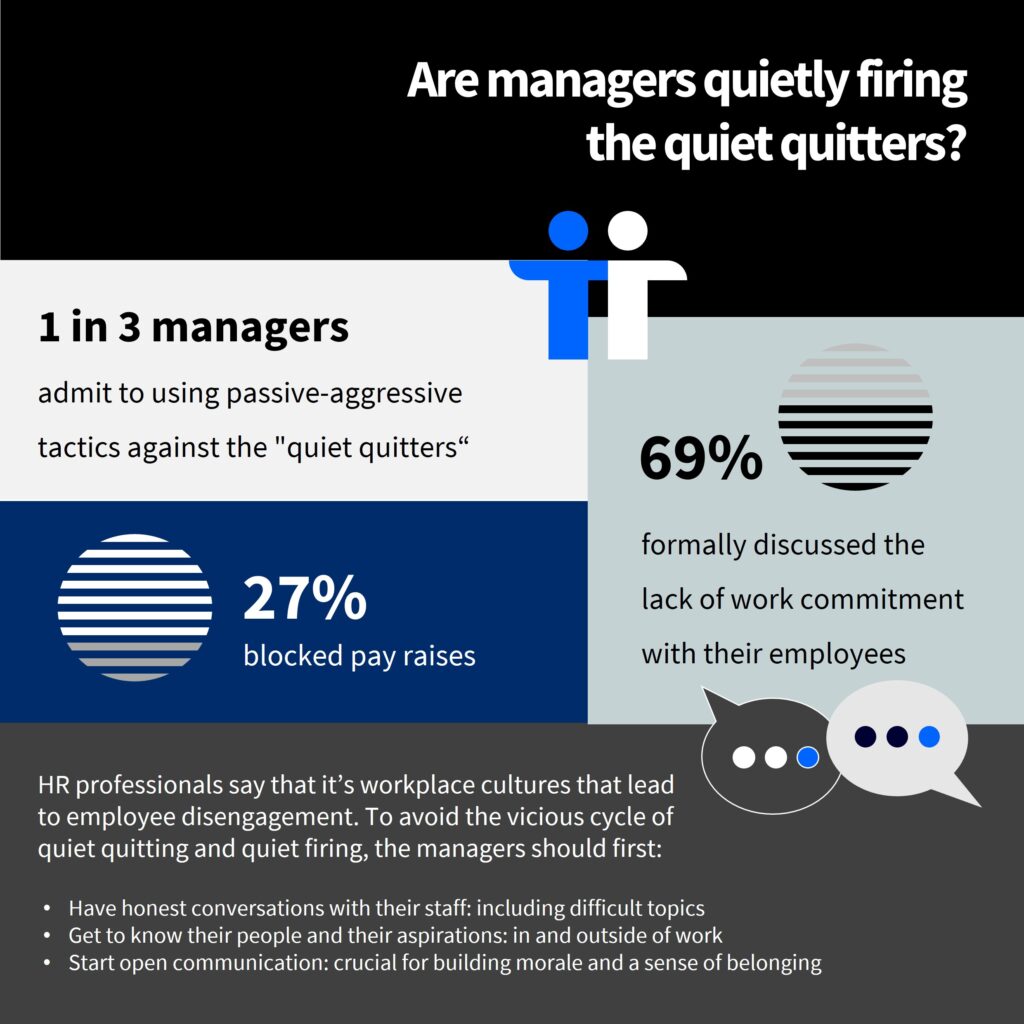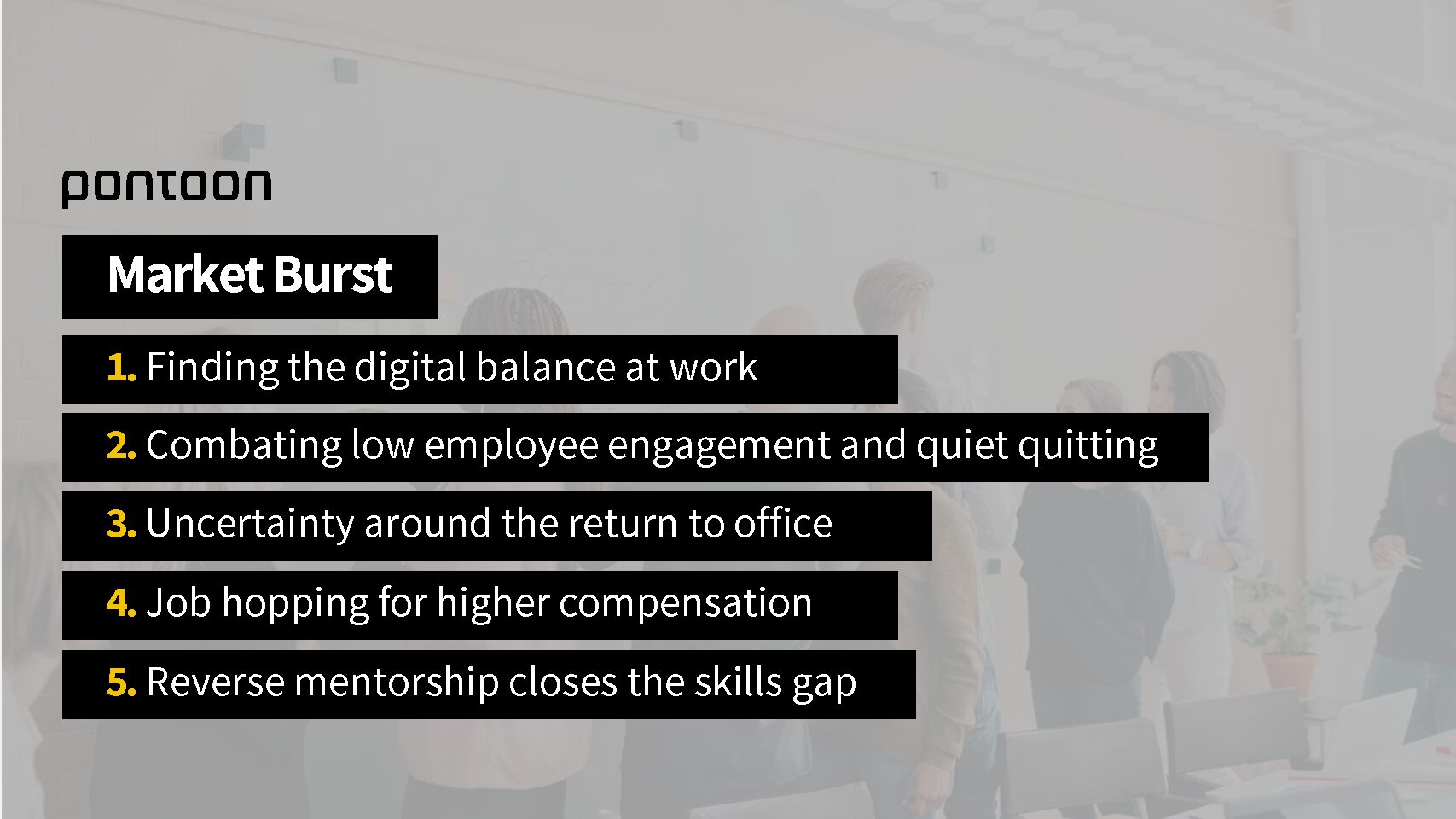A closer look at quiet firing
Research
.

Quiet quitting took social media by storm and sparked a heated debate. Many now see quiet quitting as a way to set healthy professional boundaries. Quiet quitters are finding empowerment in the refusal to conform to going above and beyond. As the debate on quiet quitting continues, a new phenomenon enters the stage – “quiet firing”.
Quiet firing denotes an employer’s practice of trying to make their staff quit – seemingly of their own volition – through several strategies. These might include withholding raises and promotions, delegating mundane tasks below the employee’s skill and expertise level, and denying development opportunities. Although research on this topic is needed to provide more nuance, a recent survey from Resumebuilder.com shows that 1 in 3 managers admit to using passive-aggressive tactics to make work uncomfortable for none other but the “quiet quitters”. The same report shows that 69% of managers formally discussed the lack of work commitment with their employees. Others responded by denying raises (27%), delaying promotions (23%), or even starting the formal termination process (19%).
Are we witnessing a vicious circle of quiet quitting – and quiet firing? Which one comes first – the quiet quitter or the quiet fire’rer? Have both phenomena developed only recently? Not necessarily. A LinkedIn News poll found that 8 in 10 respondents admit they had faced quiet firing or witnessed it in their workplace before.
Regardless of their origins, both quiet quitting and firing are worth watching out for – especially in a market challenged by retention issues and staffing shortages. 60% of HR professionals who report quiet quitting in their organisations admit that their firm’s culture leads to disengagement. Qualitative data reveals that issues such as poor people management, insufficient communication, and lack of supervisor support commonly affect workplace culture and demotivate employees from going the extra mile. So what can businesses do?
Managers must have honest and open conversations with their staff, even if such discussions are difficult. This will likely require additional training, as some supervisors don’t have the skills necessary for issue resolution, and some are conflict-avoidant. Managers should get to know their people and their aspirations. Stay interviews are a perfect opportunity to understand what’s essential for employees at work and beyond professional careers. Open communication is crucial for team morale and building a sense of belonging.
Related Post
Read about top trends in the world of work.
Finding the digital balance at work
In the fully-remote and hybrid world of work, poor technology leads to a poor employee experience. Productivity ...




